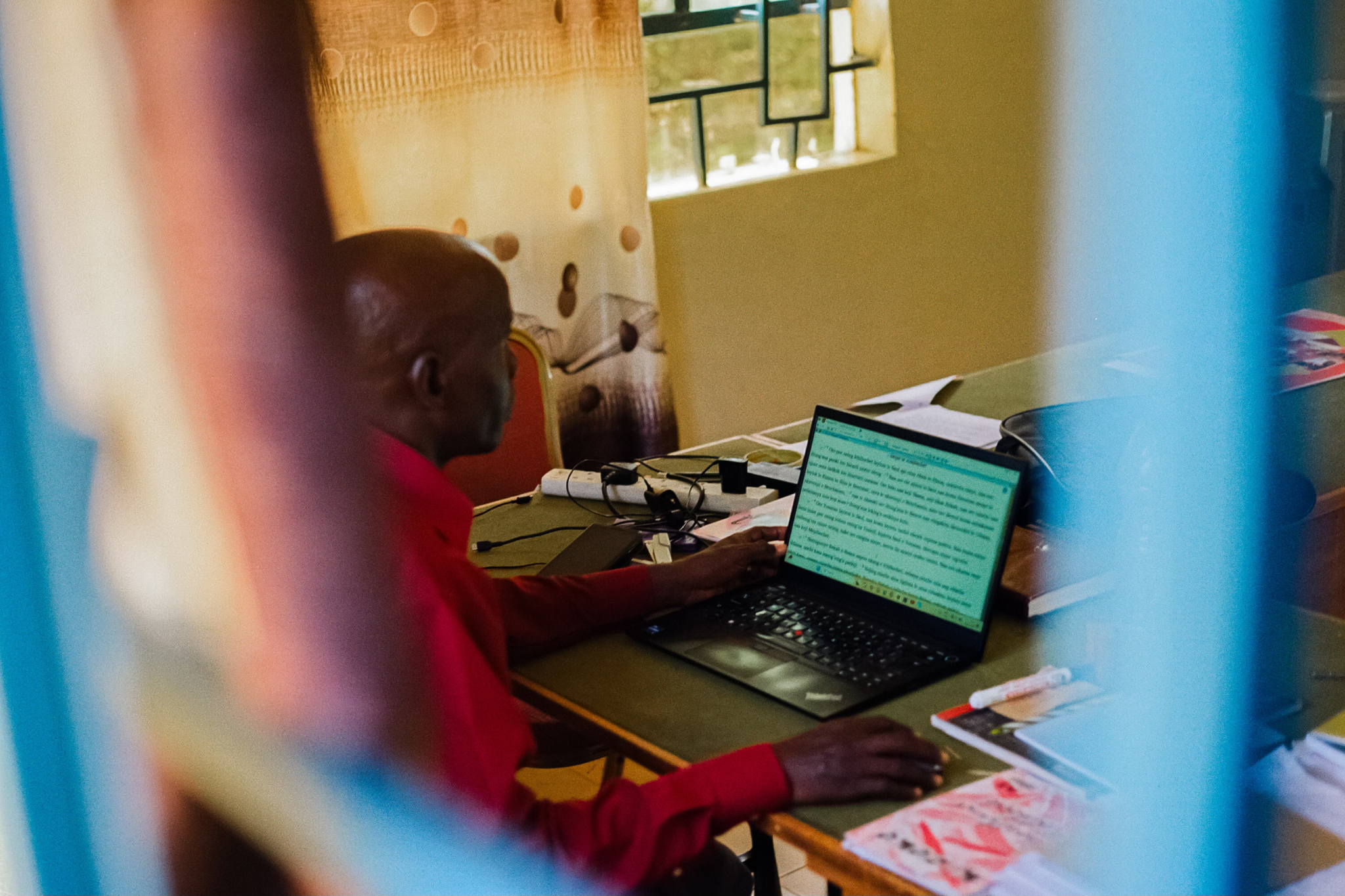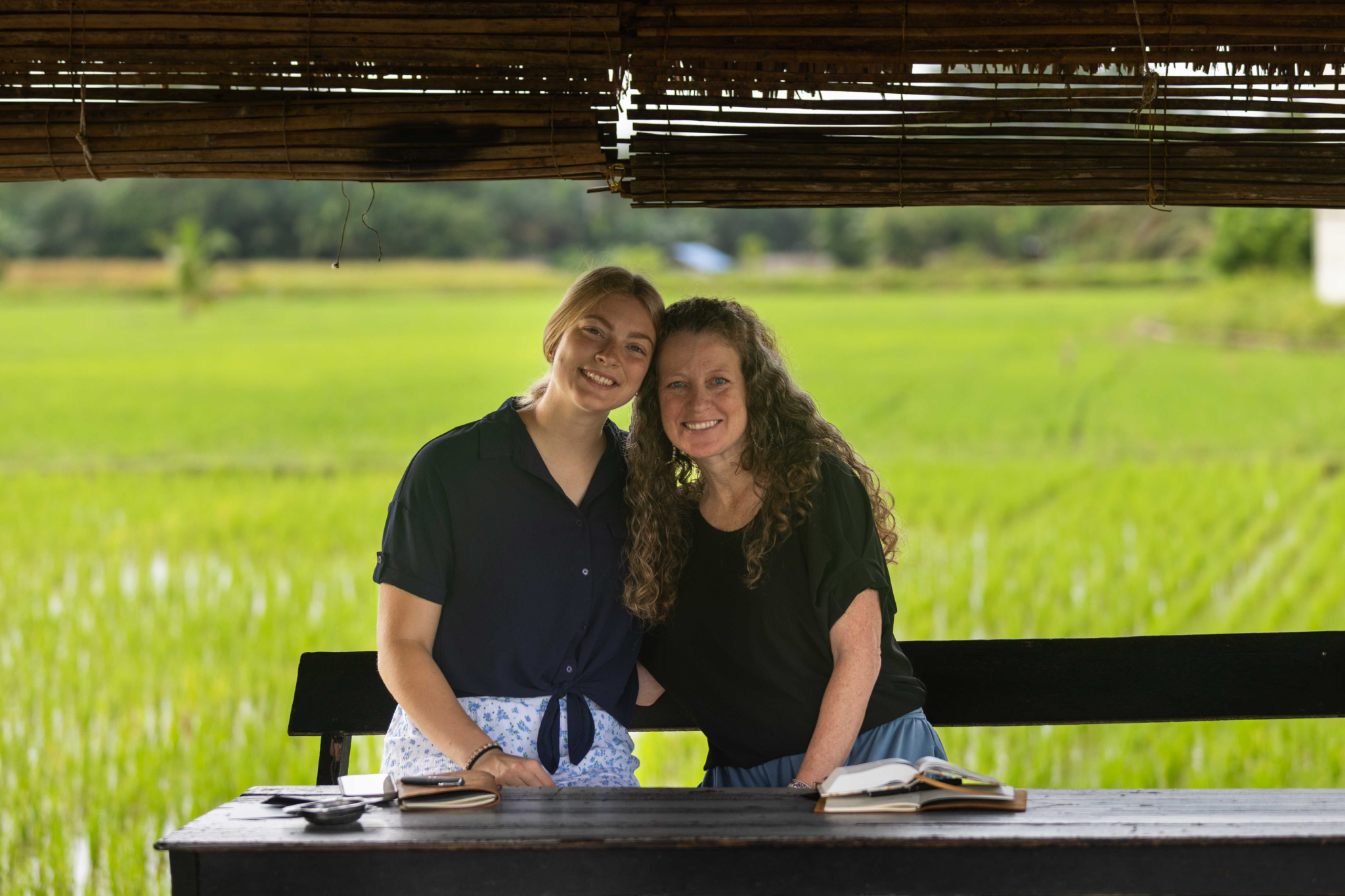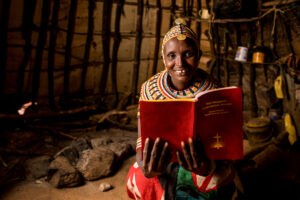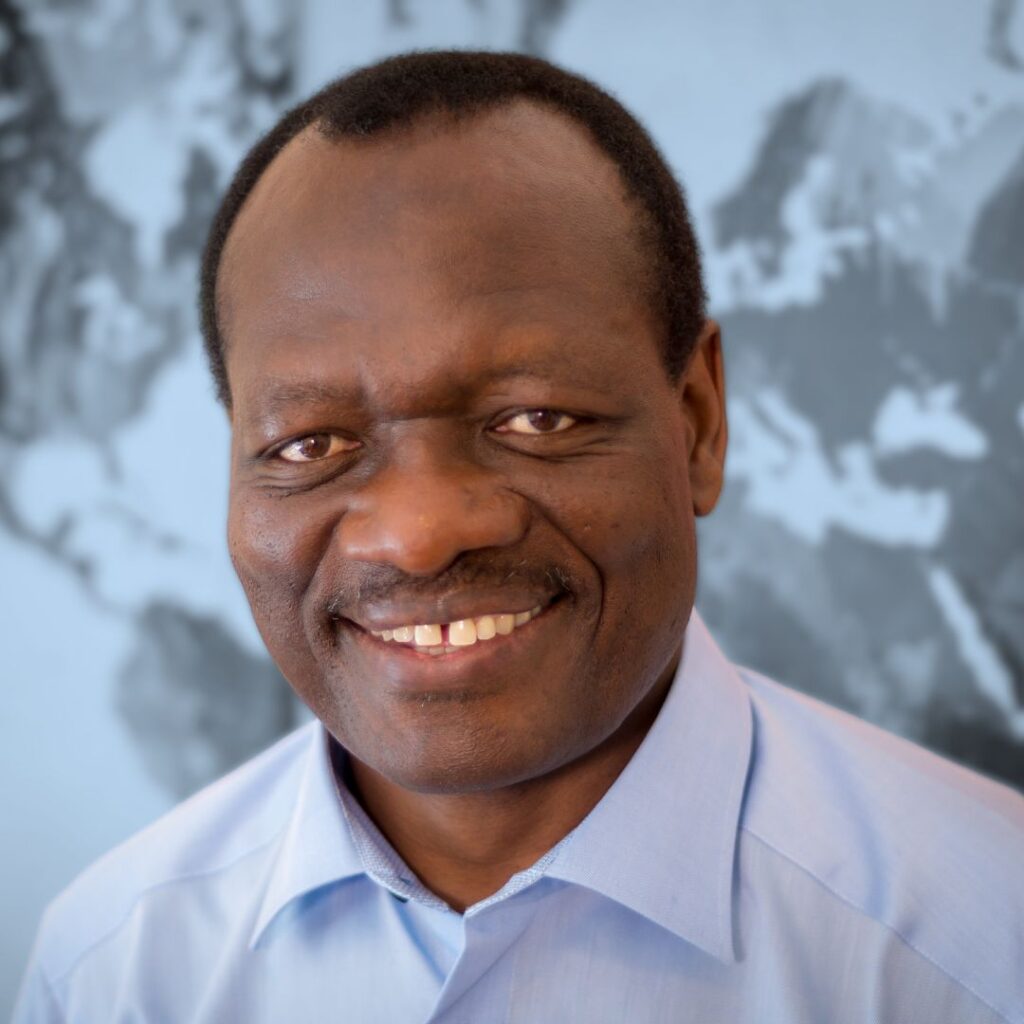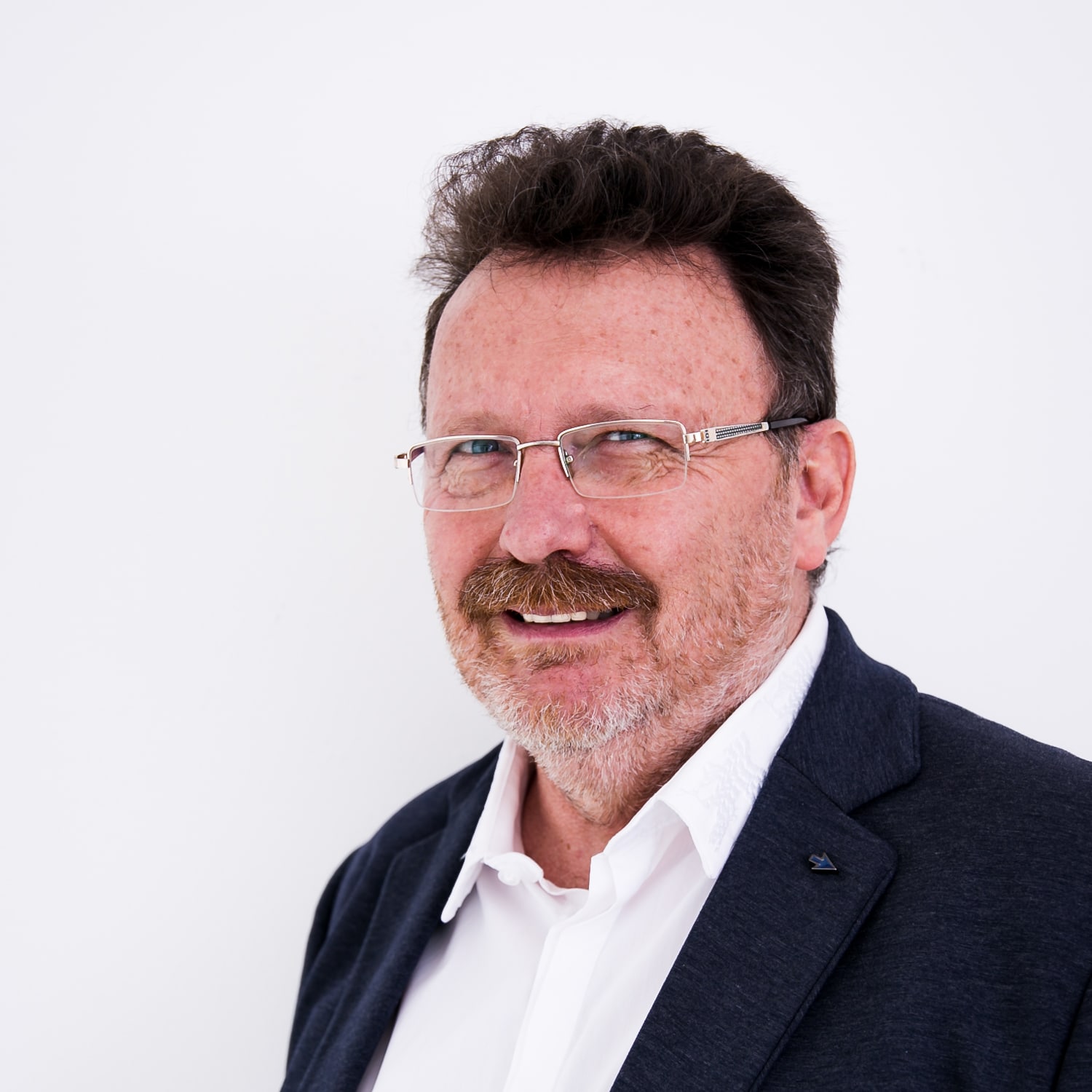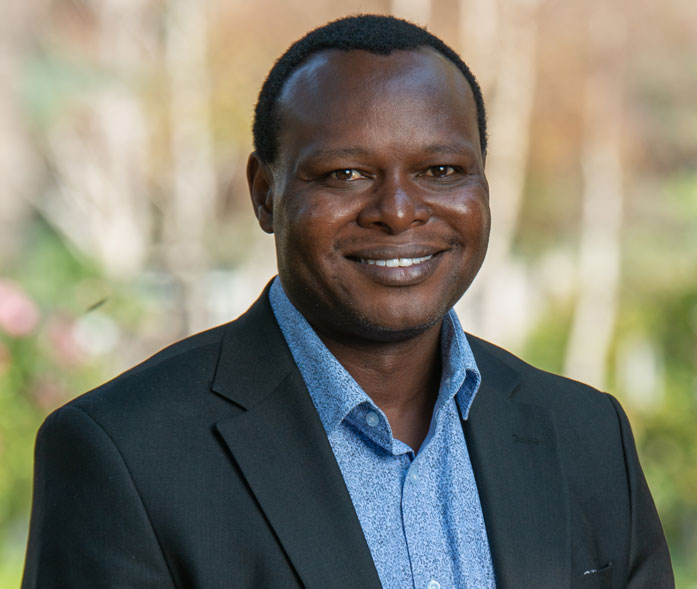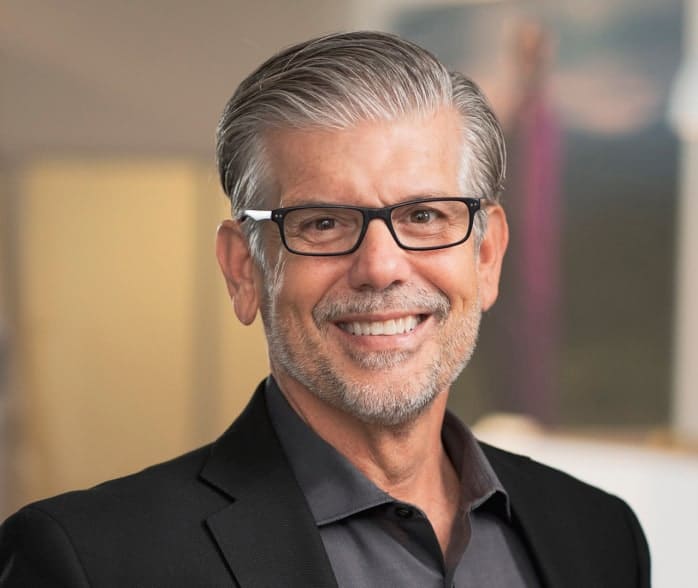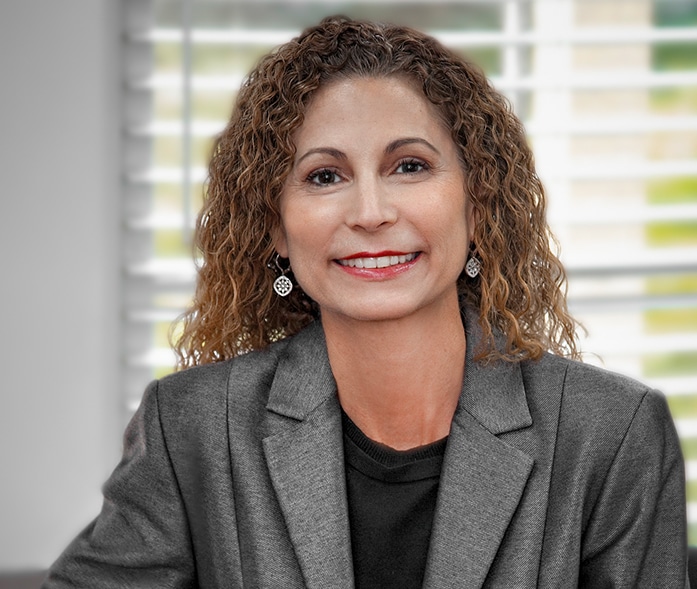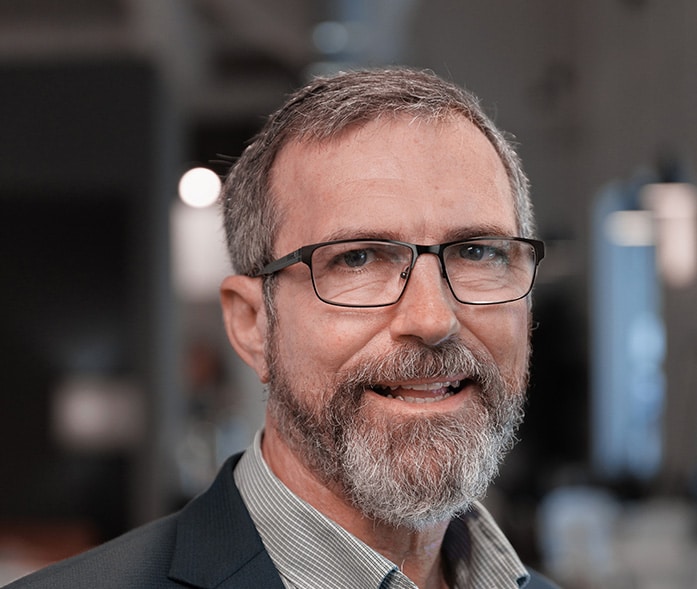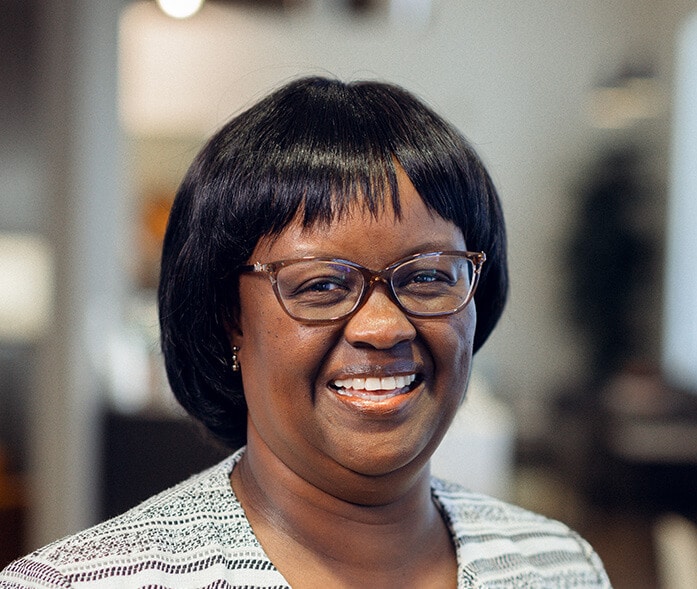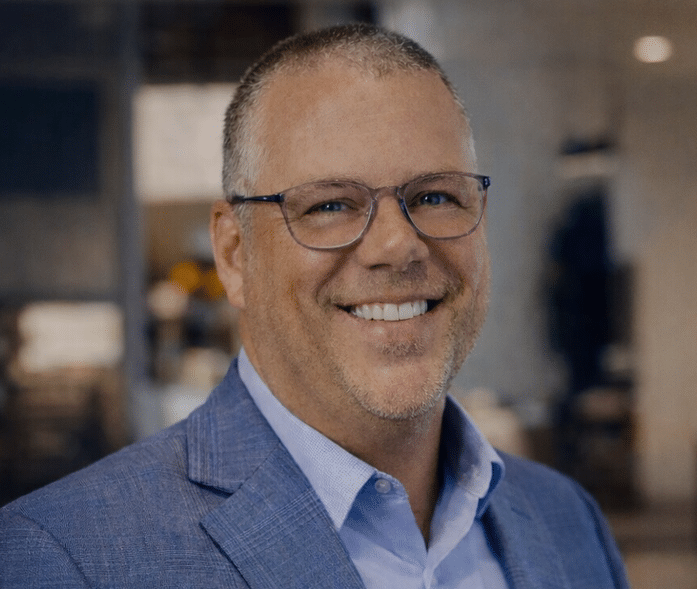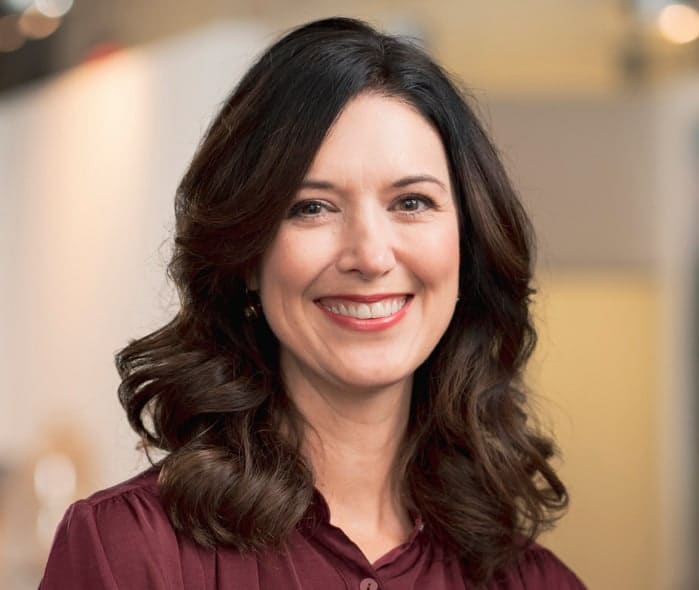First Scripture is the entry point of God’s Word into a language. When we label a project “First Scripture,” it means we’re partnering with a local team to translate the first portions of God’s Word they’ve ever had in their language, in any format.
Sometimes “First Scripture” can also mean that Bible translation was attempted in the past, but the final product was unusable. Usually, this happens when:
-
- Bible translation was initiated by an outside party without local community involvement and buy-in
- There were insufficient consultant checking steps, so the translation came out inaccurate
- The translation wasn’t tested in the community to make sure it was in everyday, understandable language
A translator in Asia writes about the importance of First Scripture to her people group:
“I realized that the reason the number of believers was decreasing instead of increasing was because their faith wasn’t built on the words of God. Because they never had a Bible they could fully understand, they didn’t understand God; because they didn’t have God’s promises when difficulties came, they gave up.
“The more I translate, the more I love my mother language, the more I love my people, and the more need I see for the translation.”
A Matter of Urgency
Right now, more than 40 million people from 1,293 language communities are waiting for even one verse of Scripture.
* according to Progress.Bible SNAPSHOT, July 2024
Seed Company works with our partners to prioritize the last, the least, and the most difficult to reach. Our goal is to begin Scripture translation in every language as soon as possible.
This vision comes from Revelation 7:9, as we work toward the day when we will see representatives from every nation, tribe, people, and language standing before the throne of God.
First Scripture Comes in Many Forms
1. Storytelling & Audio Recordings
Nearly 80% of the world’s population prefer oral methods of communicating. Often, trained oral Bible storytellers are the first ones to introduce Scripture into a community. God’s Word spreads rapidly throughout a people group in much less time than it would take to publish a book.
Sometimes, translators record audio Scriptures for distribution through listening devices or smartphone apps. They may also hold listening groups, in which a trained facilitator guides group discussions of audio Scriptures. Virtual listening groups were one of many ways God’s Word continued to spread during COVID-19 pandemic lockdowns.
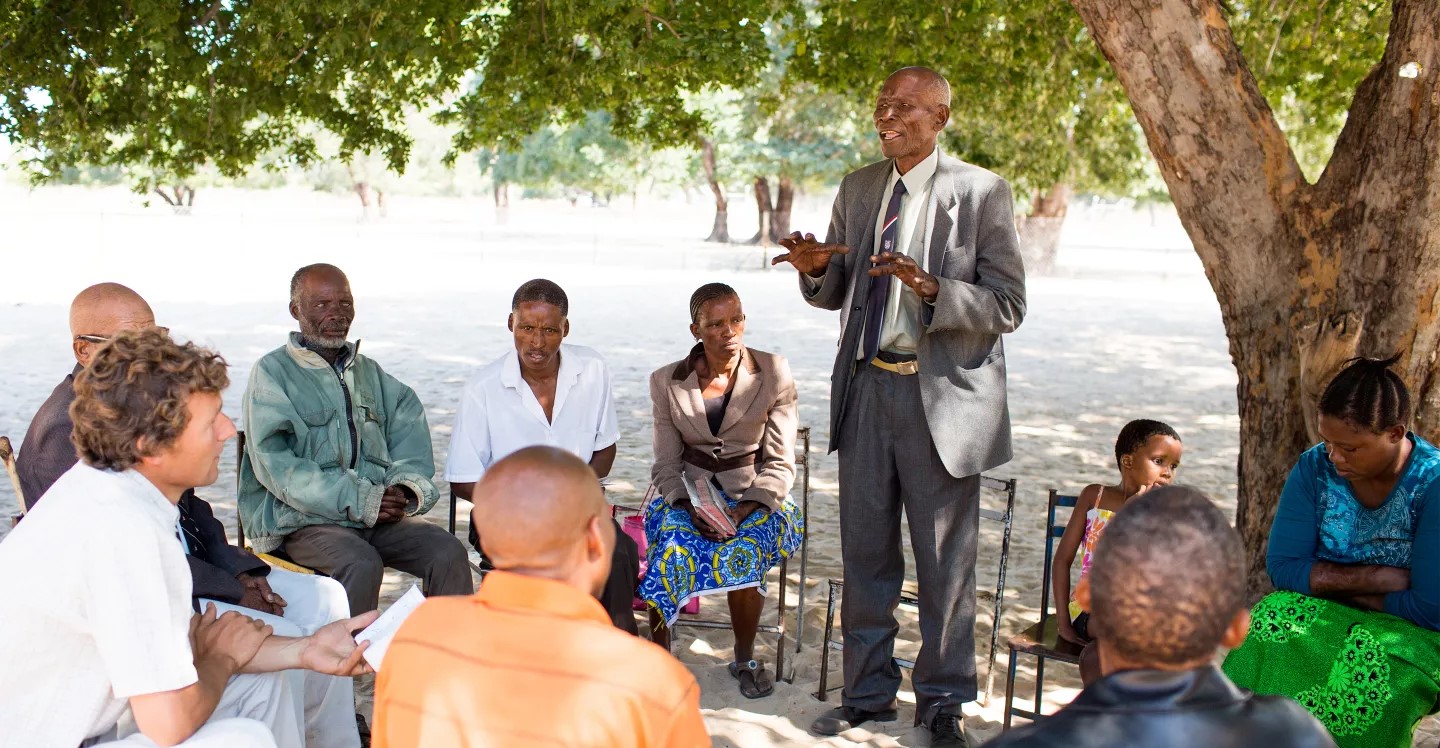
2. Video
Video can often be an extremely effective way to immerse people in God’s story.
Teams may translate scripts to accompany any number of media from the Jesus Film Project—not only the “JESUS” film itself (which includes 70% of the Gospel of Luke) but also the Magdalena film, which portrays Jesus’ compassion for women.
LUMO is another key video partner organization, which works with our other partner Faith Comes By Hearing to produce full-length feature films that use actual gospel texts, word-for-word, as their scripts.
Often, translation teams will host watching groups to spread the word about Bible-based films. They may hold these groups in person or on social media, with trained facilitators guiding discussion.
3. Sign Language Translation
Fewer than 2% of the world’s 70 million Deaf people know Christ. 90% of Deaf people struggle to read, so the written word (which is basically a second language for many Deaf) is usually not an effective way to reach them.
We work with partners like DOOR International, Deaf Bible Society, Deaf Missions, Deaf Harbor, and Avodah to accelerate sign language translation, usually through video formats.
4. Apps
Our field partners use app builder programs to put Scripture, as well as storybooks, hymn books, and community development resources, on apps. These resources are then easily, quickly, and cost-effectively distributed throughout communities, from one person or church group to another.
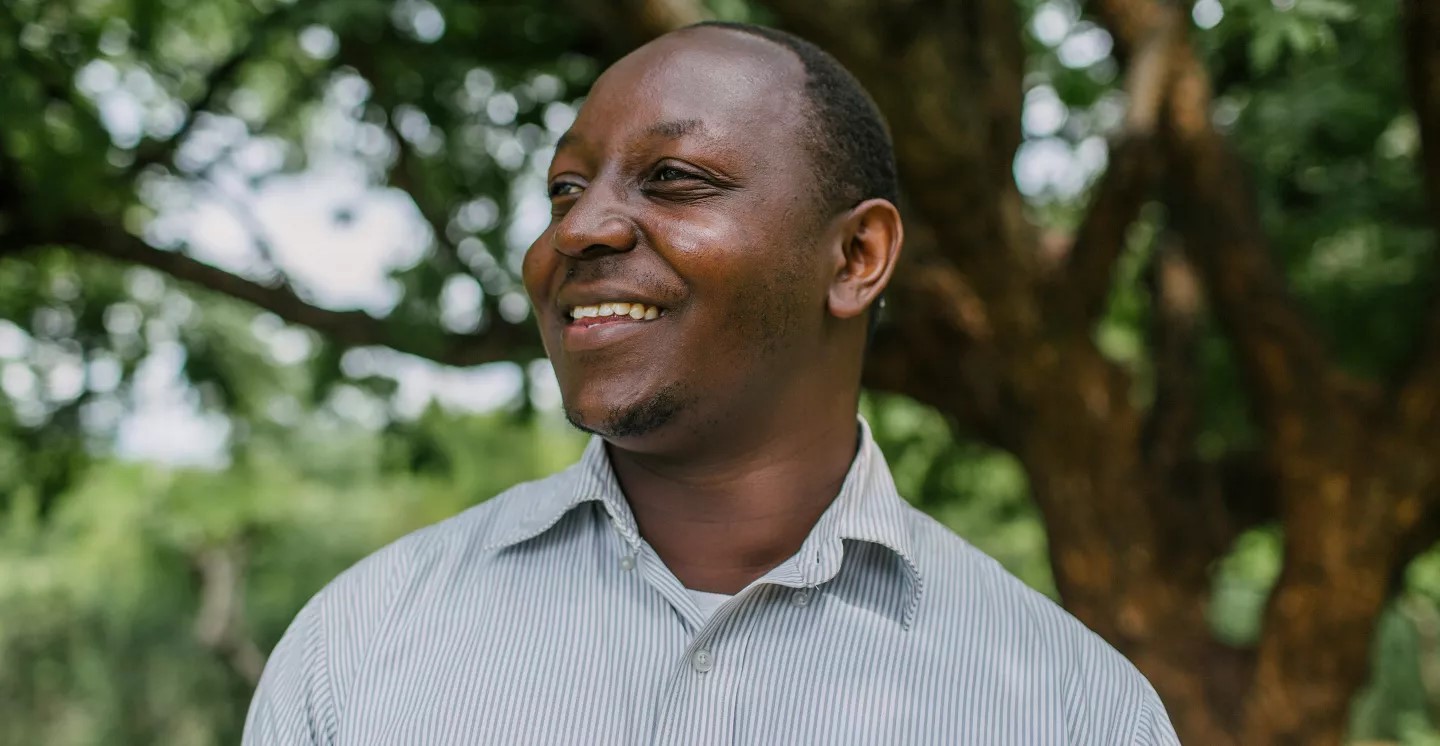
5. Websites
Field partners sometimes create multilingual websites and put the Scripture online. These websites, such as the Worodougou website, may feature links to download apps for any smartphone.
6. Written
Written words have an important place in many cultures. For example, in Muslim contexts where the Qur’an is revered, printing a Bible may be important in order for it to be considered true Scripture.
For some people groups, publishing a book affirms the worth and dignity of their culture and language. Having a book in their language can elevate groups that have been marginalized and discriminated against by the majority culture, demonstrating that the most high God values them just as much as other people.
Which Parts of the Bible Are Usually First Scripture?
Bibleless language groups often start translation work with one of the following:
1. A Gospel
Matthew, Mark, Luke, or John. Communities often choose to start with the “JESUS” film and then go on to finish all of Luke’s Gospel.
2. The Wonderful Plan of God
This is a series of Bible stories straight from the Bible that show the unfolding of God’s plan of salvation, from creation through Revelation. Book One, “The Beginning of Everything,” includes selections from Genesis. The second book, “The Story of God’s People,” includes selections from Exodus. Book Three, “A King Will Come,” includes selections about Jesus.
3. Lives of the Prophets
A collection of stories about Old Testament prophets and Jesus, these Scripture passages are chosen to help a Muslim audience accept Jesus not only as a prophet but also as their Savior.
4. Old Testament Selections
Especially in Muslim or Jewish contexts, Old Testament selections can pave the way for openness to the Gospels.

3 Views of Global Bible Translation Needs
1. All for All
We want all people groups to have access to the full counsel of God—all 66 books of the Old and New Testament—in a way they can understand and connect with on a personal level. This is the ultimate goal for all believers! But this will take much longer to achieve than the next two goals, which is why “all for all” is not Seed Company’s primary focus … at least for now.
2. All for Some
According to Wycliffe, more than 700 of the world’s languages now have a complete Bible. But when we consider that there are over 7,300 total languages in the world, we can appreciate just how vast the remaining task is! Therefore, while some groups prioritize getting the full counsel of God into only the most widely spoken languages in the world—reaching the greatest number of people in the shortest amount of time possible—this is not Seed Company’s top priority.
3. Some for All
While we do manage projects in communities that already have some Scripture and are continuing to work toward a complete Bible, Seed Company’s most urgent priority is “some for all”—starting projects for those who still don’t have a single verse of Scripture.
In fact, at our current rate of acceleration, we believe we could see every single remaining language on earth begin translation in this generation!
And that means reaching every tribe, nation, people, and language that much sooner. Because time and time again, we see Scripture beginning to transform lives in communities long before the Bible is complete.
A Parable to Illustrate the Importance of “Some for All”
Dr. Todd Ahrend, founder of The Traveling Team, shared the following story to demonstrate the importance of reaching the unreached:
Once, there were five ships sinking at once in the ocean, but only one rescue boat.
Ship #1 was right by the rescue boat, while Ship #2 was a bit farther out. Ship #3 was farther still, Ship #4 was quite far, and Ship #5 was so far away that some would say it was a waste of resources for the rescue boat to even try to reach it.
But the captain of the rescue boat had one assignment: to rescue at least some people from every sinking ship. If he would have rescued every single person from Ship #1 but left the other four ships sinking, he would have failed his assignment.
Staying Focused on the Assignment
In the same way, when we look at Revelation 7:9, we believe we would be disobedient to only focus on the language groups that already have some Scripture—even though it takes more time, creativity, innovation, and financial resources to reach the last remaining people groups with their very first taste of God’s Word.
Focusing on First Scripture keeps us pressing toward the day when people from every nation, tribe, people, and language will stand before the throne of God—with Christ for all eternity.
With our focus on “First Scripture,” how do we stay faithful to partners who want to keep working toward getting the entire Bible in their languages? Discover how our Growth Partners team and Internship Program build local capacity to multiply the gifts of the global church.

